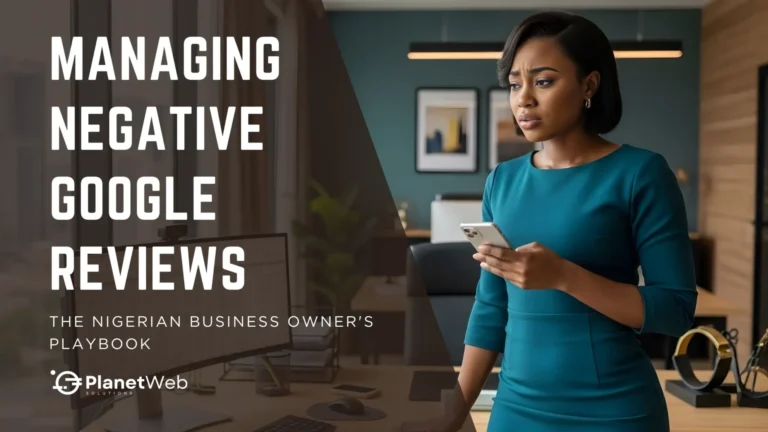Don’t Build on Quicksand: Why Regulatory Arbitrage Will Kill Your Nigerian Startup
February 5, 2021. Nigerian crypto founders woke up to a Telegram message that changed everything.
The Central Bank of Nigeria had banned financial institutions from servicing cryptocurrency exchanges. No warning. No consultation period. Just a circular that went live on a Friday afternoon.
Within hours, bank accounts were frozen. Customer deposits were trapped. Exchanges that had spent years building trust watched their businesses grind to a halt. Some founders scrambled to pivot to peer-to-peer models. Others went underground. A few just shut down.
The founders who survived weren’t the smartest or best funded. They were the ones who had already built backup plans, who had assumed this exact scenario might happen, who hadn’t bet their entire business model on regulators staying asleep.
In Nigeria, the biggest risk is not competition. It is policy that can flip the table without warning.
This is part four of our “Startup Models to Avoid in Nigeria” series. The pillar article identified Context Mismatch as a primary killer of startups. After covering infrastructure gaps, trust deficits, and spending realities, we now examine regulatory challenges for startups in Nigeria and why betting on stable policy will destroy your business.
Here’s the uncomfortable truth: if your startup only works because regulators haven’t figured out what you’re doing yet, you don’t have a business model. You have a countdown timer.
The Regulatory Arbitrage Trap
Regulatory arbitrage means finding gaps in the rules and building your entire company on those gaps staying open.
It’s tempting because these gaps often represent huge opportunities. There’s no competition because everyone else is either too cautious or properly licensed. You can move fast, undercut traditional players on price, and capture market share quickly.
But in Nigeria’s policy environment, betting on regulatory stability is like building your house on quicksand. Unlike markets where regulatory changes follow predictable cycles of consultation, draft rules, and phased implementation, Nigerian policy often moves in the opposite direction. Enforcement comes first. Formal rules follow later. Sometimes they don’t follow at all.
You’re not competing with other startups. You’re racing against the next circular, the next directive, the next sudden policy shift that could make your entire business model illegal overnight.
Why Regulatory Challenges for Startups in Nigeria Happen
This pattern is baked into how decisions get made.
The Central Bank of Nigeria, Securities and Exchange Commission, Nigerian Communications Commission, National Information Technology Development Agency, and the Nigeria Data Protection Commission all have overlapping mandates. They don’t always coordinate. A startup can be compliant with one regulator and violating another’s unwritten expectations at the same time.
Policy is often driven by political pressure cycles rather than purely economic logic. When forex scarcity becomes a political problem, the CBN restricts access. When crypto becomes associated with fraud or capital flight, it gets banned. According to World Bank economic indicators, Nigeria’s complex monetary policy environment reflects these competing pressures. The calculus is “what solves today’s crisis,” not “what’s best for innovation.”
Nigeria’s ICT Development Index score is 52.9 in the 2025 ITU report, which underlines why predictable, cross-agency rule-making remains hard. Cross-sector sandboxes are still limited in practice. Clear pathways for new business models remain scarce. What’s allowed today may not be allowed tomorrow.
Nigeria’s regulatory landscape: overlapping mandates
| Regulator | Primary Mandate | Common Overlap Areas |
|---|---|---|
| CBN | Banking, payments, and monetary policy | Fintech, digital payments, forex |
| SEC | Securities, investments, capital markets | Crypto, crowdfunding, digital assets |
| NCC | Telecommunications, spectrum | Mobile money, USSD, digital infrastructure |
| NITDA | IT development, data protection | Data privacy, digital economy, tech startups |
| NDPC | Data protection and privacy | User data, KYC, privacy compliance |
Data compiled from CBN, SEC, NCC, NITDA, and NDPC official mandates, 2025
The cost is uncertainty. You can’t plan an 18-month product roadmap when a single circular could make half of it illegal. Investors get nervous about markets where rules change mid-game. Talented people leave for more stable opportunities. These regulatory challenges for startups in Nigeria require founders to design businesses with built-in flexibility.
Case Studies That Make It Real
The 2020 CBN Payment Caps
The CBN’s sudden imposition of transaction limits on fintech wallets nearly killed several startups built around high-value transactions. The strict caps meant that anyone using these platforms for serious commerce was suddenly cut off. The limits were later revised, but not before companies burned through months of runway.
Companies with banking licenses or diversified revenue streams survived more easily. Those that had bet everything on wallet-based payments struggled.
One fintech startup reported losing 68% of its transaction volume within the first month. The unit economics never recovered.
The lesson: If your competitive advantage only exists because you’re not regulated like a bank, assume that advantage is temporary.
The Crypto Crackdown of 2021-2024
Nigerian crypto exchanges had grown explosively between 2019 and 2021. Nigeria consistently ranked in the top 5 worldwide for peer-to-peer Bitcoin trading volumes. Exchanges like BuyCoins, Bundle, and others were processing millions in daily transactions.
The problem? They were building in a regulatory vacuum. There were no clear rules saying crypto was legal. But there were also no rules saying it wasn’t. So they built, raised funding, and scaled fast.
The CBN saw things differently. In their view, these exchanges were facilitating capital flight and undermining monetary policy. When they decided to act, they didn’t start with consultations. They started with a ban.
Some companies went fully underground, deleting apps and moving to Telegram-only operations. Others shut down entirely, returning customer funds and closing shop. The prepared operators had already built peer-to-peer rails as a backup. When the ban hit, they could route around it.
By 2024, the regulatory environment started shifting. The SEC launched the Accelerated Regulatory Incubation Programme (ARIP) to license Virtual Asset Service Providers. SEC’s ARIP framework and VASP checklist outline interim onboarding while full rules mature. If you pursue ARIP, build for delays and keep P2P rails on standby. But the founders who had assumed regulators would stay friendly in 2020 were already gone. BuyCoins Pro shut down.
Crypto market status at a glance
| Impact Metric | Pre-Ban (2020) | Post-Ban (2021-2023) | Current State (2024-2025) |
|---|---|---|---|
| Active Exchanges | 20+ | ~5 (underground) | 8-10 (seeking licenses) |
| Bank Integration | Direct | None | Limited (via ARIP) |
| User Trust | High | Collapsed | Rebuilding slowly |
| Average Monthly Volume | Growing 15-20% | Dropped 80%+ | Recovering via P2P |
Data from TechCabal, Nairametrics, industry reports 2020-2025
The lesson: If your model only works in the grey zone, you need a white zone backup.
Fintech Licensing Delays: The Grey Zone Trap
Fintech licensing has left companies in regulatory limbo for years. You’re big enough that the CBN wants you licensed, but the license takes 18-24 months to get, if you get it at all.
The timeline: Initial application (2-3 months), CBN review (6-9 months), site visits (3-4 months), final approval (2-3 months), post-approval setup (1-2 months). Total: 14-21 months minimum, often longer.
One payment startup spent ₦47 million on licensing applications, legal fees, and compliance infrastructure over 22 months before finally getting approved. Another gave up after 18 months and pivoted entirely.
The lesson: Factor in 18-24 months for licensing from day one. Budget ₦30-60 million for the full process, depending on license type.
Who Got the Strategy Right
Some Nigerian startups have navigated regulatory risk brilliantly. They treated compliance as a competitive advantage, not a cost to avoid. Their approaches offer practical lessons for founders facing regulatory challenges for startups in Nigeria.
Paga: Licensing First, Scaling Later
When Tayo Oviosu founded Paga in 2009, mobile money was completely new to Nigeria. There were no clear regulations. Instead of moving fast and asking for forgiveness later, he spent nearly two years working with the CBN to create the mobile money licensing framework. Paga got licensed before they really started scaling. When the CBN later cracked down on unlicensed operators, Paga was safe. In 2024, Paga processed 124 million transactions worth ₦8.7 trillion, after years of investing in licensing and regulator engagement.
The strategy: Build relationships before you need them. Accept slower initial growth in exchange for long-term stability.
Flutterwave: Compliance as Infrastructure
Flutterwave built compliance into their DNA from day one. They treated it as infrastructure, the same way they treated their API or database. They invested heavily in getting licensed across multiple African markets. When investors looked at them, they saw a company that understood how to operate at scale in regulated markets. By 2022, Flutterwave had processed over $16 billion, and volumes have continued to grow across new corridors.
The strategy: Treat compliance as a product feature. Make regulatory readiness a selling point to investors and enterprise customers.
Interswitch: Shaping the Rules
Interswitch didn’t just comply with regulations. They helped shape them. By working closely with the CBN as a partner rather than an adversary, Interswitch became part of the conversation about how payment systems should work in Nigeria. When new rules were written, they reflected input from companies like Interswitch that had built trust over the years.
The strategy: Build trust over years. Become the company regulators call when they need to understand how technology actually works.
Six Strategies to Navigate Regulatory Challenges for Startups in Nigeria
You can’t eliminate regulatory risk in Nigeria. But you can design for it.
1. Get Licensed Early, Even When It’s Painful
Licensing is expensive and slow. Do it anyway. Treat licensing like a core milestone, not an afterthought.
The longer you wait, the more you build on an unstable foundation. If getting licensed means you have to charge more or grow slower, that’s better than scaling fast and then getting shut down.
The Nigeria Startup Act has created clearer pathways for recognized startups and innovation hubs. Use these frameworks. They’re not perfect, but they’re better than operating in total ambiguity.
Budget reality: Expect to spend ₦30-60 million on legal fees, application costs, compliance infrastructure, and staff time over 18-24 months for major fintech licenses.
2. Design for Multiple Scenarios
Before you build anything, ask: “What’s our business if X regulation drops tomorrow?”
Run scenario planning for the obvious risks. If you’re in fintech, what happens if the CBN caps your transaction sizes again? If you’re in crypto, what happens if they ban bank transfers again? If you’re building a data business, what happens when data localization requirements get strict?
If you can’t answer these questions with viable alternatives, you’re building on quicksand.
Sample scenario planning matrix
| Scenario | Probability | Impact | Mitigation Strategy | Owner | Next Review |
|---|---|---|---|---|---|
| Transaction caps reduced | Medium | High | Build B2B revenue streams | CPO | Q2 2025 |
| Forex restrictions tightened | High | Medium | Multi-currency support | CFO | Q1 2025 |
| New licensing requirements | Medium | High | Start the application now | Compliance | Ongoing |
| API pricing increased | High | Low | Multiple providers | CTO | Q3 2025 |
Work through this exercise quarterly, not just once at founding. If two indicators move in the same direction, pause any irreversible bets.
3. Engage with Regulators Before They Come Looking for You
Don’t wait until you’re big enough to be a problem. Start building relationships when you’re still small.
Attend CBN fintech forums. Join the Fintech Association of Nigeria. Respond to consultations even when they don’t directly affect you yet. Following updates from African tech news sources helps you stay informed about regulatory trends.
Practical engagement tactics:
- Respond in writing to every public consultation relevant to your sector
- Attend quarterly stakeholder meetings (most regulators host these)
- Join industry working groups on standards and best practices
- Share quarterly business updates with your assigned regulator contact
4. Build Compliance Into Your DNA
Compliance can’t be an afterthought. It needs to be part of your product development process.
Hire a regulatory advisor or compliance officer early, ideally at the seed stage. Factor compliance costs into your financial models from the beginning.
This is starting to become a competitive advantage. With frameworks like Open Banking and the Nigeria Data Protection Act now rewarding compliant data handling, the companies that built proper infrastructure from day one are pulling ahead.
Compliance budget as % of revenue:
- Seed stage: 8-12% of operating budget
- Series A: 6-10% of operating budget
- Series B+: 4-8% of operating budget
These aren’t wasted costs. They’re insurance and competitive moats.
5. Have Plan B and Plan C
Geographic diversification is about survival, not just growth.
If Nigeria becomes impossible, can you operate from Ghana? Kenya? If your current product becomes unviable, what’s the pivot?
The best insurance against regulatory risk is optionality. Multiple markets, multiple product lines, multiple paths to revenue. This costs more upfront, but it means a single policy change doesn’t kill your company.
Diversification strategies comparison
| Strategy | Time to Execute | Cost | Risk Mitigation |
|---|---|---|---|
| Multi-country licensing | 12-24 months | High | Regulatory risk across markets |
| Multiple product lines | 6-12 months | Medium | Reduces single-product dependency |
| B2B + B2C models | 3-9 months | Medium | Different regulatory frameworks |
| Partnership backup plans | Ongoing | Low | Reduces single-partner risk |
Start these conversations at founding, not when you’re forced to pivot.
6. Watch the Political Winds
Regulations don’t come from nowhere. They come from political and economic pressures.
If forex is scarce, expect restrictions on dollar-based services. If fraud is in the news, expect crackdowns on payment apps. If there’s an election coming, expect policy uncertainty.
Leading indicators to watch:
- IMF and World Bank policy recommendations
- CBN Governor speeches and monetary policy announcements
- Budget presentations and economic policy statements
- International regulatory trends (UK FCA, US SEC often influence Nigerian policy)
- Media coverage of fraud or regulatory concerns in your sector
Build a simple monitoring system. Assign someone to track these signals quarterly.
Quick Compliance Toolkit
Use these tools to operationalize your regulatory strategy:
- Regulatory calendar template – Track consultation deadlines, stakeholder meetings, and license renewal dates
- Quarterly risk signals checklist – Monitor the leading indicators listed above systematically
- Role accountabilities matrix – Define who owns compliance (typically CFO, CPO, and Compliance Officer)
- VASP/ARIP prep checklist – If relevant to your sector, start documentation early
- Incident response playbook – Define what you do when a sudden circular drops
The Hard Truth About Timing
Sometimes the regulatory window is genuinely closed. No amount of strategy can fix that.
If you’re building something that fundamentally conflicts with government policy priorities, you have two options: build somewhere else, or wait for the priorities to change. Fighting inevitable enforcement just burns capital.
The founders who pivoted early from crypto when the ban came did better than those who kept fighting for two years, hoping things would change. One crypto startup spent 18 months and $400,000 on advocacy and legal challenges. They eventually shut down anyway. Competitors who pivoted to P2P models within 3 months were processing transactions again within 6 months.
Knowing when to fold is good judgment. The market will tell you when something is not viable. Listen to it.
When Regulatory Arbitrage Might Work
This is a specialist game. Most teams are better served by building inside the lines and winning on execution.
There are rare cases where building in regulatory grey areas makes sense, but the conditions have to be right:
You’re building B2B infrastructure, not consumer-facing products. Regulators tend to care less about tools that businesses use internally than products that touch consumers directly.
You have deep regulatory expertise and relationships. Not just lawyers, but people who understand how policy actually gets made.
You’re well-capitalized and can survive 18-24 months of regulatory limbo. You need enough runway to get licensed properly if forced to.
Your model works even if fully regulated. The grey zone is an advantage, not the entire business case.
You’re in a genuinely new category where regulations don’t exist yet. Not bypassing existing rules, but operating in a space where rules haven’t been written.
Even then, you’re taking a calculated risk. Most startups don’t have the capital, expertise, or risk tolerance to make this work.
Build Through Regulation, Not Around It
The model to avoid is building your moat on regulatory gaps, banking on unclear or unenforced rules, betting you can move fast enough that regulators won’t catch up. That’s a gamble with your investors’ money and your team’s time.
The model to embrace is building something valuable enough that you can survive compliance costs, creating real value that doesn’t depend on regulatory arbitrage, treating compliance as infrastructure.
Nigerian founders don’t have the luxury of ignoring regulatory risk, but that constraint can be an advantage. Understanding regulatory challenges for startups in Nigeria and building accordingly means companies become more resilient, more investable, and more likely to win. The best Nigerian startups don’t bet against regulation. They build through it.
Frequently Asked Questions
Reality Check: Questions to Answer Before You Build
✅ Can my business survive if regulators apply the same rules to us that they apply to established players?
✅ Do I have 18-24 months of runway to get properly licensed if forced to?
✅ Have I budgeted ₦30-60 million for licensing, legal, and compliance infrastructure?
✅ Can I operate in multiple countries if Nigeria becomes impossible?
✅ Am I engaging with regulators proactively, not reactively?
✅ Does my model work in both grey zone and fully regulated scenarios?
✅ Can I pivot to a compliant model within 90 days if required?
If you answered “no” to most of these questions, you’re building on regulatory goodwill, not a sustainable business model. Redesign your approach for the regulatory reality that exists, not the one you hope for.
This article is part of our “Startup Models to Avoid in Nigeria” series.
Read more in this series:
Part 1: 7 Startup Mistakes Nigerian Founders Should Avoid
Part 2: Startup Models to Avoid in Nigeria (Pillar Article)
Infrastructure Gap: Why Nigerian Startups Must Design Around Broken Systems
Trust Deficit: Why Users Don’t Trust Digital Platforms
Spending Realities: Understanding the ₦1,000 Problem
Continue reading: Why Startups Fail in Nigeria: Lessons from 2024’s Closures
Help Us Shape Smarter Startup Thinking
At PlanetWeb, we share practical ideas to help founders avoid wasted effort and build with the Nigerian market in mind.
✔ Share this with a founder who needs it
✔ Subscribe to our newsletter for more local startup content
✔ Follow us on LinkedIn or X for trends, tips, and case studies
Which regulatory challenge worries you most as a Nigerian founder? Let us know in the comments.






